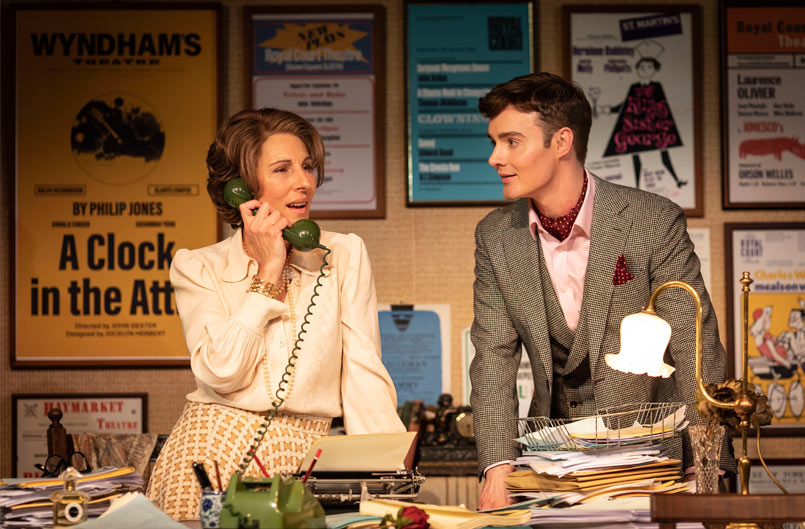As audience members, we are drawn into a fictional day (circa late 60s) at the cluttered St Martin’s Lane offices of Ms Ramsay, who in her time held flamboyant sway over the literary careers of playwrights as notable as Christopher Hampton, Alan Ayckbourn, Joe Orton, Robert Bolt, Stephen Poliakoff and David Hare. Writer Alan Plater (one of the two Alans from Yorkshire whom she represented — which provides one particularly amusing thread when their royalty cheques get mixed-up) drew on a blend of memory, anecdote, myth and legend to create the piece twenty years ago. From his razor-like recollections he penned a work which captured the true essence of a soul enamoured by plays and their power to effect change. Thankfully, under the Hampstead Theatre team’s expert handling, it’s as sharp today as it was on this reviewer’s first encounter two decades ago (then with Maureen Lipman in the title role).
Various interactions between the agent and a new protégé, (Simon - Josh Finan) her current golden boy (Philip - Jos Vantyler) and an aggrieved northerner, a once promising newcomer who has faded (Henry - Trevor Fox), give rise to a constant stream of situations laced with barbed wit, playful literary references and a deep insight and understanding of the mechanics required to transport an audience …from one side of a river, across a bridge and onto the new reality of the playwright’s construction.
As Ramsay herself was prone to remark — “Everyone’s extraordinary dear. It’s the writer’s job to tell us why.” Plater certainly manages to convey her scatterbrained brilliance, her subtle manipulation skills and tart condemnation of creative types when they misguidedly resort to using money as their muse, but it is Ms Greig’s expertly judged and physically nuanced habitation of Peggy Ramsay which prowls centre stage from start to finish and which delivers the playwrights words with devastating aplomb.

 Tamsin Greig and Jos Vantyler in Peggy For You - © Helen Maybanks
Tamsin Greig and Jos Vantyler in Peggy For You - © Helen Maybanks

